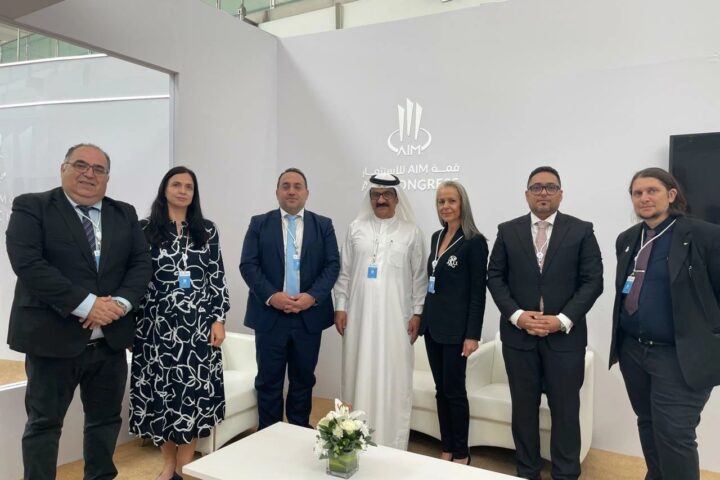The European Year of Intercultural Dialogue 2008 will be launched in
When preparing the media launch of the European Year for Intercultural Dialogue in early December 2007, Ján Figel’, the European Commissioner for Education, Training, Culture and Youth said: “In the 21st century, Europe faces a new challenge: how to become an intercultural society, based on a respectful exchange of views between individuals and groups with different cultural backgrounds, on an equal basis. We want to go beyond multicultural societies, where cultures and cultural groups simply coexist side by side: mere tolerance is not enough anymore. We need to give an impulse for a true metamorphosis in our societies, so that we can create an intercultural Europe where cultures exchange and interact constructively, and where there is universal respect for human dignity.”
On 7 January 2008, a conference entitled “Intercultural Dialogue as the Fundamental Value of the EU”, will be organised in Ljubljana, Slovenia, in the presence of Commissioners Ján Figel’ and Jánez PotoÄnik. Academics, thinkers, writers, artists and journalists from many European countries will discuss the challenges of multicultural Europe and set the stage for the official launch of the European Year the next day in Ljubljana Castle.
A press conference with Ján Figel’ and Slovene Culture Minister Vasko Simoniti will be held on 7 January at 12:00. The topics of the conference will include culture, art, education, research, sustainable economic development and media, as well as aspects of migration, multilingualism and religions.
The Year will be officially launched in Cankarjev dom in Ljubljana on 8 January by the president of the European Commission José Manuel Barroso, Slovenian Prime Minister Janez Janša and the president of the European Parliament Hans Gert Poettering.
According to a recent Eurobarometer public opinion survey, two thirds of Europeans interact with at least one person of a different religious, ethnic or national background every day, which shows that intercultural interaction is a common daily feature in the EU. Over 70 percent of respondents consider these relations as positive and enriching.
The European Year builds on this attitude. The main vehicles to transmit the Year’s messages will be its 27 national projects and seven pan-European flagship projects which will involve people from all Member States and touch a wide variety of themes. The approach is very much decentralised, or ‘bottom up’, with crucial input from civil society in Member States, regions and municipalities. At the same time there is a strong focus on communication, in order to propagate the results of these activities. Fifteen outstanding personalities from Europe’s cultural scene, known as the ‘Ambassadors’ of the Year, will be helping in this effort.
Although there is an emphasis on the activities within the Member States, Brussels will also be hosting some key events. Six big debates on such topics as migration, minorities, education, cultures and religions will be organised with Commissioners and well-known personalities. Concerts of orchestras subsidised by the EU are in preparation, as well as a youth event around the theme of inter-religious relations.
Intercultural dialogue has been traditionally present in projects subsidised by the Commission’s main funding programmes in the fields of education (the Lifelong Learning Programme), culture (the Culture Programme) and youth (the Youth in Action Programme). The objectives expressed for the Year will continue after 2008 as a permanent and ever growing priority for the future in these funding programmes, whose combined budget exceeds € 8.6 billion for the period 2007-2013. A considerable part of this money is and will stay available to promote intercultural dialogue in Europe.
More information: www.dialogue2008.eu
List of the seven flagship projects:
http://www.interculturaldialogue2008.eu/354.0.html?&redirect_url=my-startpage-eyid.html
List of the 27 national projects: http://www.interculturaldialogue2008.eu/353.0.html?&no_cache=1
Â







